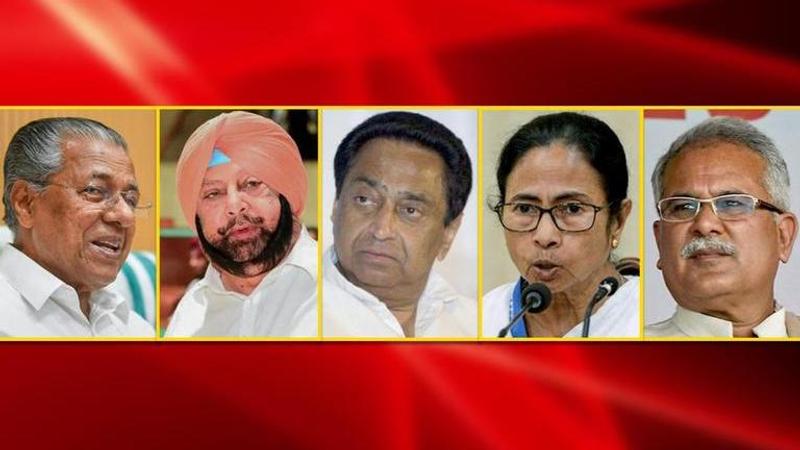Published 18:19 IST, December 13th 2019
5 states say they won't implement CAB; experts weigh in on their legal options
Pinarayi Vijayan was the first CM to give the clarion call against the CAB. He said, on Thursday, that the CAB is unconstitutional and has no place in Kerala

Pinarayi Vijayan was the first Chief Minister to give the clarion call against the CAB. He said, on Thursday, that the CAB is unconstitutional and has no place in Kerala. Since then, several other states, Punjab, West Bengal, Chhattisgarh, and Madhya Pradesh, have declared that the state governments will not implement CAB.
While these statements serve the purpose of ostensibly registering their protest against CAB, Republic spoke to a few legal experts to explore what options the state governments have, as per the Constitution, to resist CAB. The views obtained were diverse but most submitted that since the state machinery would be imperative, state governments can withhold cooperation is providing the same.
M.G. Devasahayam, former Army and Indian Administrative Service officer
'Legally it is an act of Parliament but the implementation takes place at the state level and district level. It is like the election-Representation of the People Act is a parliament act. Election Commission is a central agency but the entire election is conducted by officials of state like District commissioner, police, etc. So the central government might have enacted the law but if the state government tells its officials 'don't bother about it’ who will process the applications, who will go through the processes. NRC in Assam was implemented by district administration. Even if the central government sends a tribunal, who will give protection to them? The actual issue is a law and order problem. If they send the army and paramilitary forces, it will be a different situation.
Legally, the interpretation has to come from the Supreme Court. the states can pass a resolution but any state law that is in conflict with the Parliament of central law, the latter prevails. As per administration, this law is non-implementable. We are not clear about what procedure will be followed.'
Santosh Hegde, former SC judge, former Solicitor General of India and retd Lokayukta of Karnataka
'There are divergent opinions on the options and the final call will be taken by the SC.
As per the law, as per Articles 14 and 25 etc. the object of the act seems to be to provide relief to those who are being troubled by their home countries. And if this is done on humanitarian grounds, how can they be discriminated against on the basis of their religion. If you are providing citizenship on the basis that he is persecuted in his country, religion cannot be brought in. You cannot then say, 'if you are a Muslim, you have not suffered'. If you have material to show the person is a threat to national security, then a Hindu, Muslim or anyone can not be given citizenship.'
Shrihari Aney, Former Advocate General of Maharashtra
'If this is a central law, there is no question of states having a different say in it. If it was a constitutional amendment in which the states have to pass in their states as well, then they could have opposed it. This is just the law within the competence of the parliament, the states refusing to implement it would amount to a refusal to abide by its constitutional duty.
All they can do is to drag their feet, not make available the bureaucratic support needed for implementation. The SC only has the power to decide whether the law is constitutional or unconstitutional. That challenge will be raised anyway, does not have to be raised by the states. But if the law is upheld by the SC, you have to implement it, whether you like it or not.
It is an expression perhaps of the popular sentiment of the state. Because we have to understand that the government to represents the majority will of the people. In Meghalaya, the CM made the statement that he will quit NDA, you may have a political out relatable to citizens and their view but the law does not depend on that.'
Mehmood Pracha, Delhi based senior lawyer
'They can register their opposition formally by writing to the Centre is the first step. Prudence demands that states should be consulted. The constitution has considered this as a subject where centre and states have equal rights, therefore, taking a one-sided decision of such a large scale is not right. Because citizenship in this form, ie CAB and NRC, will have ramifications in some states.
Law and order is a state subject and this is obviously one. Therefore this is actually against the federal structure of the country and is turning the country into a centre-heavy government, detrimental to the stability. Especially since the opposition is coming from the bordering states. What is the urgency for the new legislation? I don't think there is a tearing hurry for this law to be implemented. The unity and integrity of the country are at stake so they could have been more consultative.'
Updated 21:12 IST, December 13th 2019




